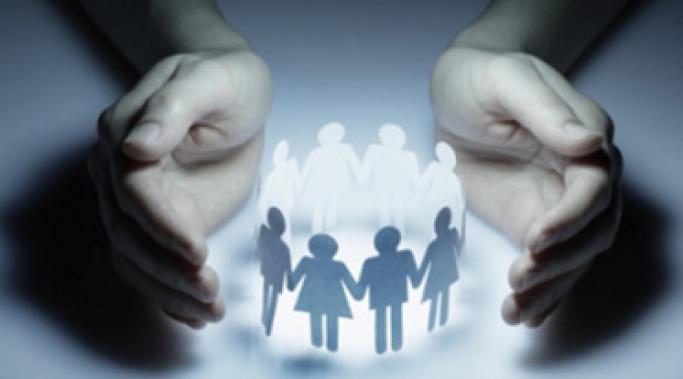Mental health stigma affects the loved ones of a person with mental illness, not only the person with the mental illness. I don’t mean in the situations where the loved one openly or inadvertently stigmatizes, but rather the stigma falls onto them to by association. I know it’s sometimes just a worry that we as people with mental illness have, and typically we look at it in the form of thinking we’re embarrassments rather than the targets of stigma, but loved ones face mental health stigma, too.
Impact of Stigma
It’s a natural thing to make comparisons, but when we compare mental illnesses, it can lead to stigma when you start using it, whether consciously or unconsciously, to figure out who’s sicker. While it’s very likely not intentional, when we, as people with mental illnesses, start keeping score, so to speak, we’re doing more damage than good. We end up seeing both kinds of stigma — stigma against others and self-stigma — as a result of comparing mental illnesses.
Mental health stigma can cause isolation and loneliness in those with mental illness (Mental Illness, Isolation, and Loneliness). No one with a mental health problem should isolate themselves due to mental health stigma because loneliness can lead to more severe problems, even suicide. The loneliness of isolation certainly causes personal grief and sadness for those dealing with mental health stigma.
Careful media portrayals of mental illness are more important than they may seem. While it’s true that not everyone feels the influence of media, there are people that do, and it is those people that we have to keep an eye out for. People might be influenced regarding their hair style or the latest Twitter hashtag, but the media portrayal of mental illness may influence them as well.
Saying mental illness and acceptance in the same breath might seem like an awful idea at first, but accepting your mental health condition can actually be a key player in removing, or at the very least alleviating, the stigma you face (Why It’s Hard to Accept a Diagnosis of a Mental Disorder). Personally speaking, accepting my mental illnesses for what they are helped both the self-stigma and external stigma I felt.
The stigma surrounding mental illness can be debilitating; it can even cause you to deny symptoms you need to share with your psychiatrist and treatment team (How to Talk to a Doctor About Your Mental Illness). The fact is, until you can open up to your doctor and others who are there to help you and be honest, it will be very difficult--if not impossible--for you to get the help you need.
Mental health stigma keeps many from seeking treatment (The Stigma of Seeking Mental Health Help and Treatment). When an illness such as schizophrenia or bipolar exists, two things commonly occur. The first is a symptom of a mental health issue which stigma makes worse called anosognosia. Anosognosia is when you have a mental health diagnosis but lack insight into your condition -- a huge problem with people who suffer from bipolar disorder. When you add this condition to mental health stigma, sufferers will not seek treatment because of these negative attitudes towards mental illness and their recovery period will be a much longer one. But that's not the only problem that may keep you from treatment
Watching social media on the US election night last week left me with a feeling of dread and it's important not to stigmatize that type of emotional reaction to the US election. The heaviness of people’s words and the fears they expressed post after post was palpable through the screen. I hadn’t searched for the negative; I simply clicked on the trending hashtags #USElection2016 and #ElectionNight. The posts the next morning after Donald Trump’s victory was much the same. But US election emotions shouldn't be stigmatized.
Anxiety caused by mental health stigma requires unique coping skills but overcoming it is possible. Mental health stigma can cause us to question ourselves. One of the ways this mental health stigma causes anxiety when we question ourselves is when we become aware of many little issues that really mean nothing. Over time, this overthinking can lead to anxiety. In other cases, people may be prone to anxiety, to begin with, perhaps because of simple genetics or a past history of many things from bullying to abuse. Then, when mental health symptoms occur, anxiety manifests itself. Anxiety caused by mental health stigma can cause people to stutter, or have hand tremors, pace, or even just feel uncomfortable. In extreme cases, panic attacks can come about when we are under this kind of stress. Anxiety comes in many forms, and it is important to understand how it affects you so you can cope with it and arm yourself against the anxiety mental health stigma can cause. To do this, a good first step is to learn how anxiety treatment can help. It also won't hurt to take a short anxiety test. If your quiz results show anxiety (due to mental health stigma or any anxiety cause), your mental health team, which includes any counselors, psychologists, nurses or psychiatrists you see, should be able to help you address it.
There are many ways that people cope with and treat mental illnesses, whether it be different types of mental health therapy, meditation, exercise, or medication. The list could go on and what it shows is that for each person something different will work. It’s part of the complex nature of these illnesses and part of the mystery that still needs solving.









